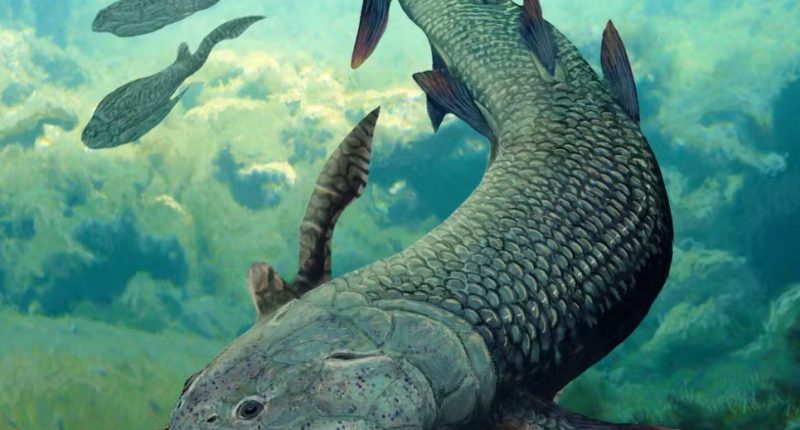A KILLER fish that lived hundreds of millions of years ago was capable of breathing air.
Fossils belonging to the ancient fanged sea-beast were found in Australia – in one of the oldest rivers in the world.
The 1.3ft predator had large and spaced fangs, set alongside a set of tightly-packed and sharp teeth.
And it even had four “limbs”, and seen to be predecessors to modern limbed animals with backbones.
The fish – known as Harajicadectes zhumini – was special because scientists at Flinders University believe it was capable of breathing air.
This breathing process would take place through large openings on the top of its skull.
“These spiracular structures are thought to facilitate surface air-breathing,” said Dr Brian Choo, a palaeontologist who worked on the study.
“With modern-day African bichir fish having similar structures for taking in air at the water’s surface.”
Dr Choo studied the most complete specimen of the creature, found in Australia’s Finke River.
The river is a gold mine for palaeontologists as it’s believed to be one of the oldest rivers in the world.
Most read in News Tech
This 470-mile-long river dates back hundreds of millions of years, and has supported many different species over the ages.
AIR-VOLUTION!
Scientists believe that the air-breathing adaptation seen in this fish appeared at a decreased atmospheric oxygen – in the mid-Devonian period.
It would have allowed the fish to survive better, by acquiring oxygen from multiple sources.
“The ability to supplement gill respiration with aerial oxygen likely afforded an adaptive advantage,” said Professor John Long, also of Flinders University.
“We found this new form of lobe-finned fish in one of the most remote fossil sites in all of Australia.
“The Harajica Sandstone Member in the Northern Territory, almost 200 km west of Alice Springs, dating from the Middle-Late Devonian roughly 380 million years old.”
Scientists found the near-complete specimen during a 2016 expedition to the site.
But research from more than 50 years of exploration was used to piece together the story of this particular fish species.
“This fossil demonstrated that all the isolated bits and pieces collected over the years belonged to a single new type of ancient fish,” Dr Choo noted.
This post first appeared on Thesun.co.uk












